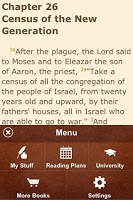“Never again spend all day talking about nothing that will never get made (sic). I want to do real things; to think about real stuff, for real people, who need real things done, and I want to feel great about my environment where I do it. If I am going to spend 10 hours a day there, I need to like [the people there] a lot… to have a culture that works. Money is the reason people say they leave a job, but culture is the reason that money becomes an issue.”I was listening to the “43 Folders” podcast of Merlin Mann’s Time & Attention Talk at Rutgers. He was discussing the culture of meetings in different companies. As I listened I thought about a question someone had recently asked: what sorts of things are you looking for in a job?
When talking about job satisfaction and dissatisfaction, more than once I’ve had someone say, “That’s why they call it ‘work’ and not ‘vacation.'” While that sounds very clever, it does not address the other aspects of, and desires in, a job. I don’t know about you, but I am at the point in my life where benefits and salary are important, but they are second to having meaningful work to do and enjoying it, which includes the people, the environment, the culture, and the customer. Put another way, making a ton of money with fabulous benefits, producing wonderful and accurate reports that will sit on a shelf, sounds like Purgatory, if not Hell. (Granted, it beats doing all that for lousy pay.) Interesting and useful work trumps salary every time.
(Caveats: We need to eat. We need to be able to care for our health and that of our families. Sometimes, for a season, the most important thing is income. The economy could be so bad, and our particular skill set so out of step with what is needed, that we will do whatever we can to survive. I may be naïve, but I do hope that those times are rare.)
So, what does my perfect job look like, after things like working for and with an organization I can “get behind,” whose mission or purpose I can support and help advance? First, what Merlin described is a good start. Real challenges, real work, working with great people, for customers with real needs, who know they have them. I’ve been blessed with working with great people at every place I have worked, really, but that alone doesn’t offset “know-it-all” customers. Next, helping develop and guide others. This does not necessarily mean being a supervisor, though I have been very successful and satisfied doing that. Finally, the ability to work at home sometimes, is a great benefit.
I remember very well a recent job I had. I was a project manager leading an effort to assess the risks associated with an unbelievably large—really, unmeasurable—network. Further, we, the team, had an inkling that when we were done and the mathematics and statistical analyses were all proven, the final report would be put on a shelf. How did I keep from going crazy? I concentrated on the task at hand, certainly, but I also focused on the individuals on my team, helping them get through it, and preparing them for better work, better times. The result was sanity for me, the required “shelf-ware” for the satisfied customer, and—though not my goal—an excellent performance rating for me.
Looking at it from the other side, “Best jobs?” My top jobs—after my grad school assistantship—were working for DEC, working for TIS, and working for myself (Avolio Consulting).
DEC. Great people, challenging work, a lot of customers and sales people to bring together and for whom to provide “interpretive services” (we spoke “techie”). In my latter time at DEC, I was connected with developers and product managers in engineering, and the best group of peers in the field, worldwide. I was able to travel, had opportunities to teach, and earned a voice in the process of how and where the products went. I also supervised the best team of sales engineers I could ever imagine.
TIS. I was employee #78, or something. Small company, that I helped grow. “A fun place to work,” was a stated goal of Steve Walker, and it was. Again, I had the opportunity to grow in my influence, to mentor others, write, and speak. We had a great work environment, great corporate culture, and free lunch, coffee, and soft drinks. The people were great, and we still meet once a year for a reunion and party. I was influential in where the products and the company went.
Avolio Consulting.Great commute. No, just kidding, though I really liked that. Business was good, so I picked and chose my clients. The work was diverse: 1/3 consulting, 1/3 writing, and 1/3 teaching. The pay was great, but I reserved the right to give away
services when the client could not afford me and the challenge was interesting. (On my “Rates” page I quoted Sherlock Holmes in “The Problem of Thor Bridge”: “My professional charges are upon a fixed scale. I do not vary them, save when I remit them altogether.”)
I loved the varied work. I loved the ability to make decisions and set direction. It was wonderful working for “real people, who need real things done,” and solving real problems.
I notice something. In none of these did I mention “clearances,” or “commutes,” or “network and computer security” (or “information assurance“). Those things are secondary. They are particulars. In each of them, I did mention the same things that Merlin noted in his talk. I guess I agree with him. It may be different for you. I hope you find what you are looking for.





